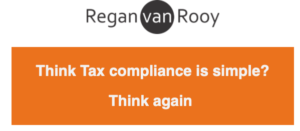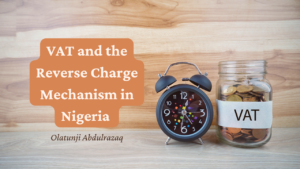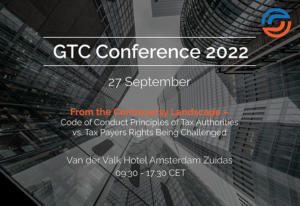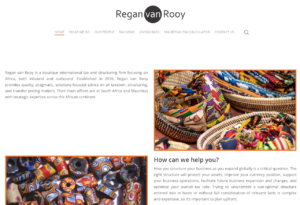S.AFRICA: Recent tax case – Fringe benefits planning ‘faux pas’ on a company car & other benefits – or not?
In a Gauteng Tax Court judgment, the judge found the only taxpayer witness (who designed the salary sacrifice scheme) not to be credible. In essence a notional account in the taxpayer company was created to track the costs of the company car for employees – which in essence demonstrated that the taxpayer company was funding all associated expenses on behalf of the employees. This meant that the employees should have paid employees tax on all the expenses paid by the taxpayer company in respect of the ‘company car’, and not on the lower fringe benefit value. The difference was in excess of R11m in back taxes for the taxpayer company. This is a case where over administration by the employer/taxpayer company on a fringe benefits scheme has exposed the fact that there is no real fringe benefit scheme, and the employer is actually paying all associated costs with the ‘company car’ on which PAYE should have been calculated and paid.
SOLUTION: A company car allocation should have been agreed to in the contract of employment, with the company keeping its own records of use, without accounting to the employee. This latter act by the taxpayer company seems to have exposed the employer company to full PAYE deductions on the amounts accounted to the employees in the notional account.
FUTURE EFFECT OF THE JUDGMENT: The taxpayer company has the right in the Income Tax Act, 1962 to collect the additional PAYE from the employees. If they don’t, the payment of the PAYE can in effect be seen as a further top up of gross income in the hands of the employees. The taxpayer company will have to pay PAYE on that as well. In practice, tax is only paid on tax once over, otherwise the exercise never comes to an end. The employees will all have an additional tax exposure for the past years of assessment – going back 3 years at least. SARS may attempt to invoke the non-disclosure rule to go back further. But then the employees didn’t know.
TAX PLANNING THAT HAS GONE HORRIBLY WRONG? or did the court get it wrong? At least one employee benefits specialist thinks the judgment is correct on the fringe benefits aspect. It is likely that the judgment will be appealed to the Supreme Court of Appeal. Here is the full judgment: SA Tax Case 5 Sept 2014 Car Fringe Benefit no recognized taxed in full UPDATE – here is another comprehensive article on the judgment:
Salary sacrifices
- DLA Cliffe Dekker Hofmeyr
- South Africa
- September 18 2014
In the recent case of ABC Limited v The Commissioner for the South African Revenue Service (case number 12984, as yet unreported), the Tax Court had to determine whether the Appellant had entered into an effective salary sacrifice scheme with its employees in respect of motor vehicle benefits. If there truly was a salary sacrifice, only the taxable value of such benefit in accordance with the provisions of the Seventh Schedule to the Income Tax Act, No 58 of 1962 (Act) will have accrued to the employee, otherwise the amount expended by the Appellant to provide the benefit will have accrued.
By way of background, the Appellant operated an employee remuneration arrangement in terms of which the Appellant expended certain amounts in providing employment benefits to its employees (employment costs). One of these employment benefits related to the provision of a company vehicle where the employee could elect either:
- to receive the right to use the company vehicle as a benefit of his or her employment and the amount expended by the Appellant in providing the benefit would be deducted from the employment costs (company car scheme). The balance would be used for the provision of other remuneration benefits; or
- to receive a motor vehicle allowance where the amount of the allowance paid by each employee would be deducted from the employment costs (car allowance). In this instance as well, the balance would be available for the provision of other remuneration benefits.
The Commissioner for the South African Revenue Service (Respondent) assessed the Appellant on the premise that the amounts allocated to the company car scheme constituted remuneration which accrued to the employees and were as such taxable in terms of Paragraph (c) of the definition of gross income in s1 of the Act. The Appellant objected to the Respondent’s assessment, which objection was disallowed. The Appellant appealed the disallowance of the objection on the basis that a salary sacrifice agreement had been entered into between the Appellant and its employees and consequently there was no accrual of sacrificed amounts in respect of the employee’s remuneration package.The Appellant further contended that the employment costs were subject to a contingency in that an employee first had to make an election before the employee would be entitled to anything. The employee would only be entitled to any benefit after an election had been made.
In respect of the company car scheme, the Appellant purchased the vehicle which was registered under the employee’s name however ownership was retained by the Appellant.
Every employee who elected to participate in the company car scheme would be allocated a notional account where an amount would be credited towards the motor vehicle allocation. The employee was provided with a fleet card and any amount that was expended via the fleet card was debited against the credit allocated thereon. Further, any other costs incurred in respect of the vehicle such as insurance, fuel and interest were debited against the amount credited in the notional account. In the event of the employee spending more than was available in the notional account, such employee was obliged to make payment in the form of deductions from salary. In the event of the employee having underspent, such employee was entitled to reclaim the balance.
The Appellant contended that the benefits did not accrue to the employees, as the employment costs were contingent on the employees electing either of the options mentioned above. Only once the employee concerned had made an election, would he or she be entitled to the benefit chosen. Therefore, the Appellant’s obligation towards the employees was contingent on such choice being made.
The Respondent contended that the benefits paid by the Appellant in terms of the company car scheme remain part of the accrued income and that the salary sacrifice was ‘not a genuine dimunition in the remuneration package arising from the costs to company.’ The Respondent further contended that the divestment in favour of the company car scheme was not an antecedent divestment of the right to the money making up the sacrificed portion and therefore this still accrued to the Appellant. As a result the employees were entitled to an amount equal to the sacrificed portion in that the credit balance in the notional account was not forfeited in favour of the Appellant, but accrued to the employee as a right to claim such amount.
NOTE FROM DR. D. N. ERASMUS – HERE IS THE CRUX:
The Court agreed with the Respondent and held that-
“…once the employee made a choice, he became entitled to the use of the car subject to the payment of an amount to be administered on his behalf towards defraying whatever expenses are incurred. Debits were made against his allocation and any credit balance remained he still had a right to claim payment thereof. The employer made no contribution at all. I agree with the submission made on behalf of the respondent that the employee is entitled to the monies he agreed to allocate to the motor vehicle scheme as part of his gross income. This right accrued to the employee. The employer on the other hand is entitled to set-off the expenses the employee incurred for the private use of the employer’s motor vehicle. This is a debt owed to the employer, but does not affect or impact on the definition contained in s1 paragraph (c) of the Income Tax Act that any amount received or accrued in respect of services rendered or to be rendered is taxable.”
In other words, the employees became entitled to the income and did not antecedently divest themselves of the right to the money since entitlement on the company car scheme account credit balance was not forfeited but paid out to them on request. The Appellant did not dispute this and the court accepted this as factually correct.
Interestingly, the Appellant submitted that in the event of the appeal not being upheld, the interest and penalties imposed should be remitted as there was no ill intent but a misinterpretation on the applicability of the law to the facts and therefore a genuine error on the part of the Appellant. The court dismissed this contention on the basis that Paragraph 6(1) of the Fourth Schedule to the Act which provides that in the event of an employer failing to pay any amount of employees’ tax for which he or she is liable, the South African Revenue Service (SARS) must impose a penalty equal to 10{780f53c297e2c008074d23b865a0ce0b35a4f08852d8e1e49466a5a902c4e44e} of such an amount. The court held that this paragraph is peremptory and therefore SARS was compelled to impose the penalty. Further, the reasons advanced on behalf of the Appellant did not amount to exceptional circumstances and therefore the interest would not be remitted.
Having regard to all of the above it should be noted that this judgment is important as it highlights the fact that in order for a salary sacrifice scheme to be effective, an employee must antecedently divest himself or herself of any right to the amount sacrificed.
___________________________________
Prof Dr. Daniel N. Erasmus Esq. BA (Wits) BProc (UNISA) H Dip Tax Law (Wits) Ph.D law (KwaZulu-Natal), is a practicing international tax attorney, www.TaxRiskManagement.com, and adjunct Professor of International Tax Law at Thomas Jefferson School of Law, San Diego, CA, USA and it’s Africa partner http://www.IITF.net.
He can be contacted at daniel@taxriskmanagement.com











